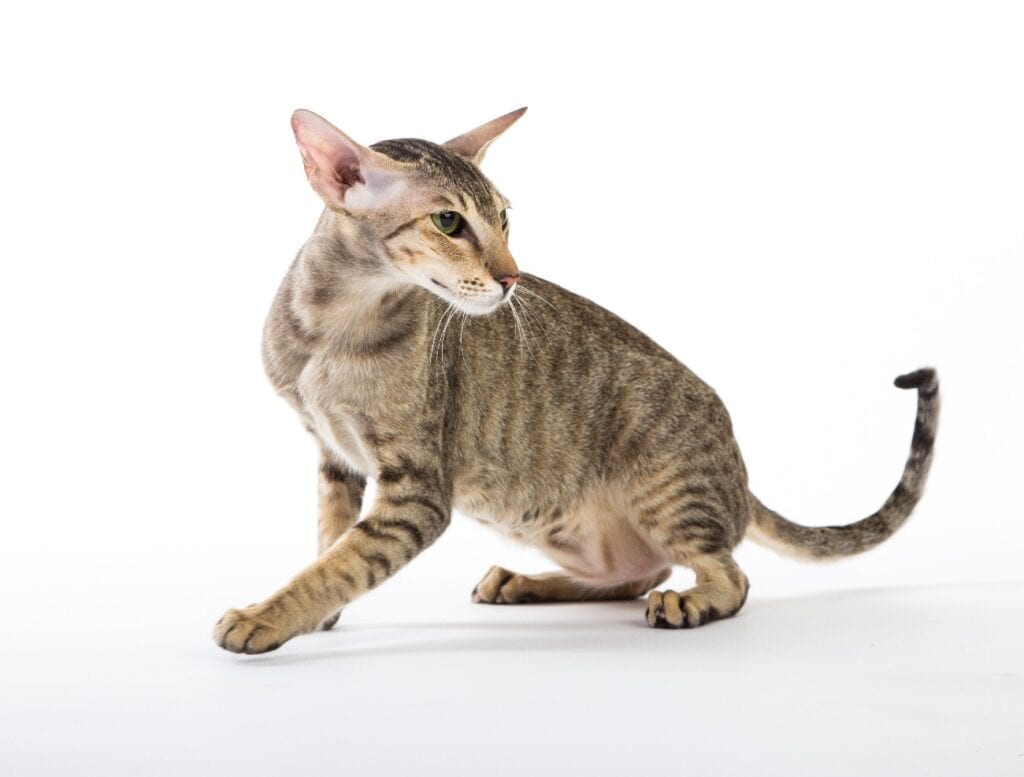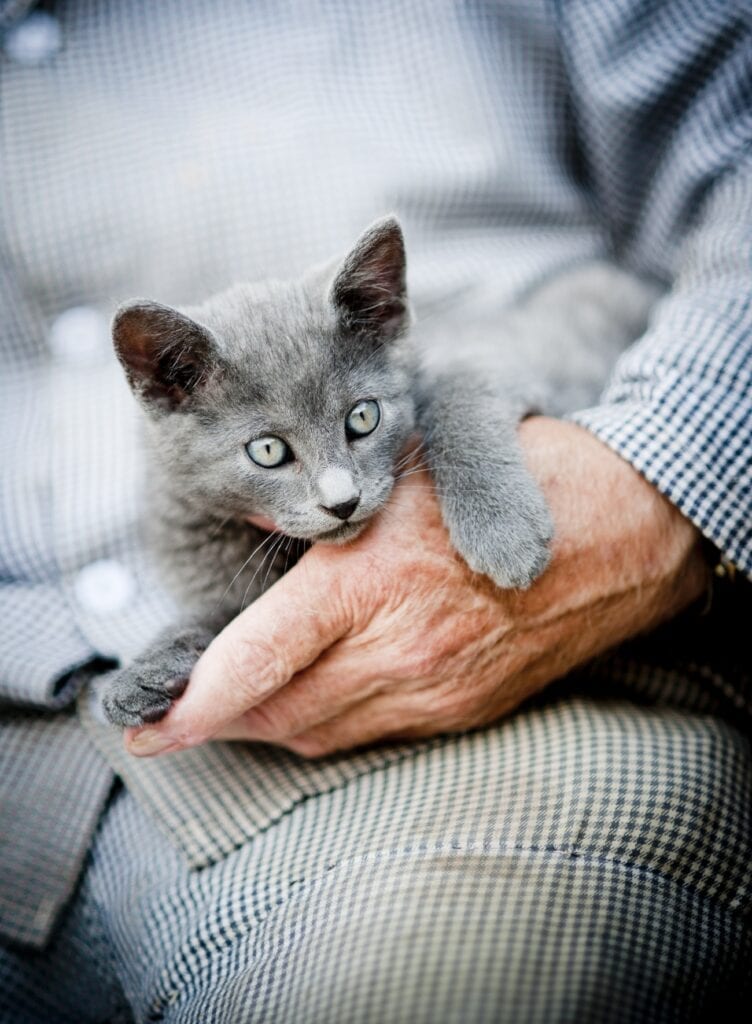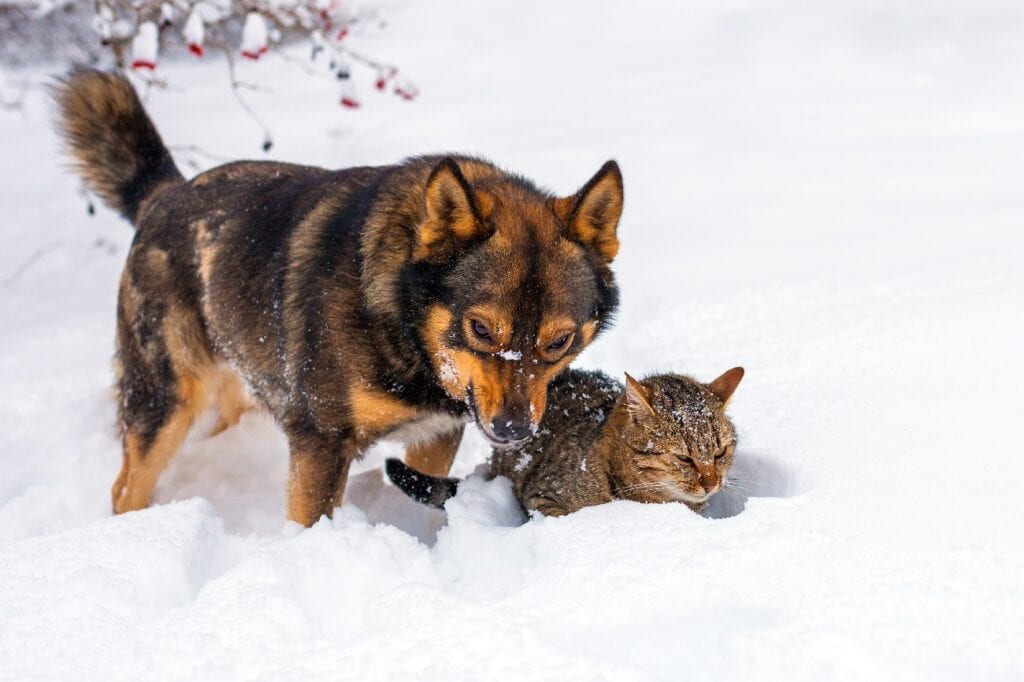Adopt a
Cat
Why should I adopt a cat?
Cats are a riot. If you’ve never had one as a pet, they’re very entertaining. They love to play and it’s very rewarding to have a purring kitten in your lap.
About Cats
Find out how to adopt a pet quick & easy
A Brief History
Cats are a domesticated small carnivorous mammal. It is estimated that there are 600 million cats living with humans. In some countries their number equals or exceeds the number of dogs. For example, Japan has 8.9 million dogs and 9.5 million cats.
Cats were first domesticated in the Near East (Asia, Turkey and Egypt) around 7500 BC. Most of cat lore found in Egypt has been attributed to around 3000 BC. We know this because of the depiction of cats in many Egyptian murals, paintings, and statues. Ancient Egyptians even used parts of the cat in depictions of their Gods and Goddesses.
Ancient Egyptians worshipped both cats and dogs but cats were believed to be magical. Egyptians dressed them in jewels and fed them expensive treats. If someone killed a cat, even by accident, they would be sentenced to death. When cats died, they were mummified and mourned. We know this because of mummified cats excavated from Gizeh. In the 2nd century, history tells us of an account where the Persian king Cambyses II during the battle of Pelusium placed venerated cats and other animals on the front lines of the Persian army. The Egyptians stopped defending the city and Pelusium fell to the Persians.
Cats were also important to the Egyptian economy. Ancient Egyptians bred cats and traded far and wide for food, oils, and resins for embalming them.

Domestication
Researchers have studied the spread of the domestic cat. DNA analysis suggests that cats lived right alongside human beings for thousands of years before they were domesticated. The DNA of more than 200 wildcat remains from ancient Romania, Egypt, and Africa were surveyed in 2017. The date of those remains go as far back as 9,000 years ago.
The ancestor of the domestic cat spread from Near Asia into Southwest Asia and Europe around 4400 BC. They settled into a roll of rodent control as farmer’s crops continued to attract rodents like rats and mice. This mutually beneficial role continued and unlike the dog, the cat actually domesticated itself.
Once the cat was “adopted” by Ancient Egyptians, the domestication and spread of the domestic cat to the rest of the world was virtually unavoidable.
By Any Other Name
Researchers have show that cats have the ability to communicate with their owners in multiple ways. They may not come when called. They may even pretend you don’t exist. They can chose to discriminate human attention states where they will look at or for their human when called when food or mealtime is involved. That is certainly no surprise to us after all the kittens we’ve fostered. We’ve also noticed that if we gesture or point to food that’s been dropped on the floor, both kittens and cats can and will take the cue and will search for the food.
Those same researchers also suggest that while dogs will do the eternal stare down when they cannot access their food, cats do not. However, a recent study demonstrated that a potentially frightening object or sound can cause a cat to look at their human. Cats will also change their behavior based on tone of voice or the facial expression of their owner. Otherwise, a spray bottle of water will learn them quick.
Research and our empirical experiences with kittens also shows that cats can tell the difference between someone familiar and a stranger. They can and do recognize gestures, faces, and voices. When a stranger is present, they may go off and hide. We believe that cats can recognize their own names and even specific words like “eat” or “food” but that may be just us.
No, that doesn’t mean that they’ll come on demand but we can almost guarantee that they’ll come running when you call them to dinner!
What's it Like to Own a Cat?
Cats, like humans, can have wildly different personalities. If you’re adopting your first kitten or cat, you should know that no two kittens or cats are exactly the same. They may have very different tastes in food, hunger levels, and how and when they interact with their humans. Unlike dogs, cats are very independent. They don’t need companionship, regular walking, or training. Although, interestingly enough, cats can be trained to use the toilet.
Cats spend much of their day sleeping. It isn’t unusual for a cat to sleep 16 or more hours a day. That typically isn’t continuous sleep but more like “cat naps”. They may sleep for several hours and then go off to play. Cats are also nocturnal animals but they may display crepuscular behaviour which means that they may be more active at dawn and dusk. Nocturnal means that they’re more active at night than during the day. Cats actually have fantastic night vision. They can see significantly better at night than humans. This is a result of thousands of years of hunting for rodents at night.
It is also not unusual for cats to find a place to sleep or even hide, going “missing” for many hours. This can be on purpose like sleeping on a window sill or under a bed but we’ve also found kittens all over the house. That includes inside our couch, box springs, cabinets, cupboards, and closets. Think your kitten is missing,? What works for us is walking around the house calling the kitty’s name and then listening for a plaintive response. “Here I am!”, she says.
Do Cats Need Exercise?
Despite what I said about not needing regular walks, kittens and cats do need exercise. If they don’t work off pent up energy, they can get get moody or even destructive. Usually that exercise is achieved through play. If you’ve decided to adopt two kittens, that’s fantastic! Two cat households are good because the kittens will play with each other and provide you with sometimes humorous entertainment with their antics and follys.
Your kitten (or cat) needs to have toys available. We find that catnip stuffed toy mice work really well. Rubber or plastic balls are also a favorite cat play toy. Wadded up or balled pieces of paper can substitute for a toy ball in a pinch. Other impromptu toys can be empty boxes and paper bags. Avoid plastic bags for the hopefully obvious smothering hazard. Other good toys include feather sticks and laser pointers.




What Do I Need to Think About Before I Adopt?
Cats fit well into busy lifestyles. They can and do well in homes where an owner might be away many hours during the day for work. They are self sufficient, being able to use a litter box throughout the day. They make excellent house pets and companions. We highly recommend adopting a kitten or an adult cat if you have a busy life. Cats can live 12-16 years or more.
You do need to make sure that you take your cat to regular vet check ups and monitor your cat’s health. They will need regular vaccinations to protect them from feline diseases. They may also occasionally need deworming and flea treatments. You also need to be prepared that they may get sick and need to see a vet. Our two adopted kittens (one is 9 months old and the other is 10 months old) recently became ill and required several visits to the vet. Ultimately, they recovered.
You should use a good comb or brush to remove loose hairs, even on domesticated short hair cats. Otherwise, your cat will ingest them. We regularly give our cats hairball remedy as a preventative. Long haired cats will shed. You should also be careful to avoid leaving rubber bands, hair bands, strings, and other small objects around for them to ingest.
You will need to provide a litter box and keep it cleaned out regularly (we do this at least twice daily in our home). You may also find that you need to dump the entire contents of the box and use fresh litter every two weeks. We completely clean and disinfect all of our litter boxes once a month.
Can My Adopted Pet Cat Go Outside?
Your adopted cat (or older kitten) can go outside on a leash or harness, otherwise we don’t recommend it as our kittens have been raised indoors and aren’t aware that there are potential predators outside. If they do go outside on a leash, they can attract fleas. While not disastrous, fleas carry diseases can can infect your pet.
Some cats can also travel well. If you intend on taking your cat on vacation or to other family member’s homes, we would encourage you to start getting them used to cars and carriers as soon as possible. While we’re thankful we haven’t experienced travel woes, we’ve heard stories from some that have and from what we’ve heard, we hope we never experience what they did. Upset stomachs and the result thereof and mewling unhappy cats just doesn’t sound like fun.
Where Do Your Kittens or Cats Come From?
The answer – it depends!
Sometimes entire litters of kittens are discovered by concerned neighbors or a friend of a friend. We may be contacted to help recover the kittens or even track down the momma cat and get her spayed. In other cases, if your cats aren’t spayed and neutered, well nature does have a way of continuing to propagate the survival of a species.
We also have older cats that may get surrendered to us for a wide range of personal reasons. Those reasons can range from an illness (including allergies), new marriage, death of an elderly person, or even moving. We don’t judge. Other cats come to us from the street where maybe they’ve had a rough life fending for themselves. They may have been previously adopted but the owner fell on hard times.
Have questions about having a cat as a pet?
Contact us



